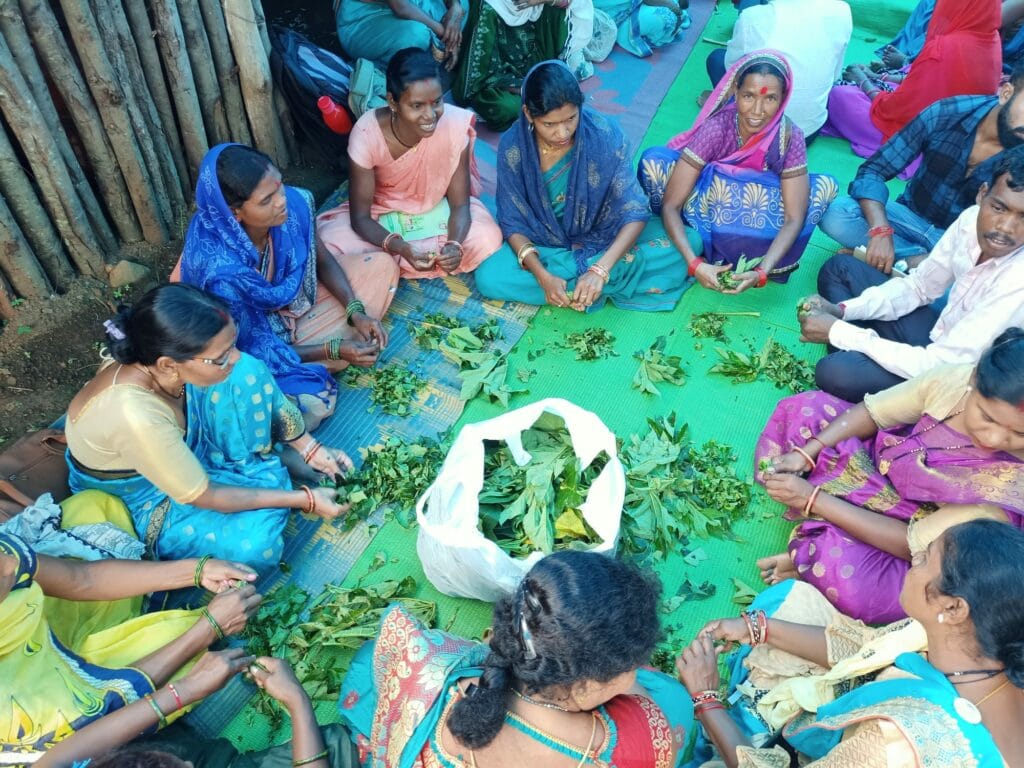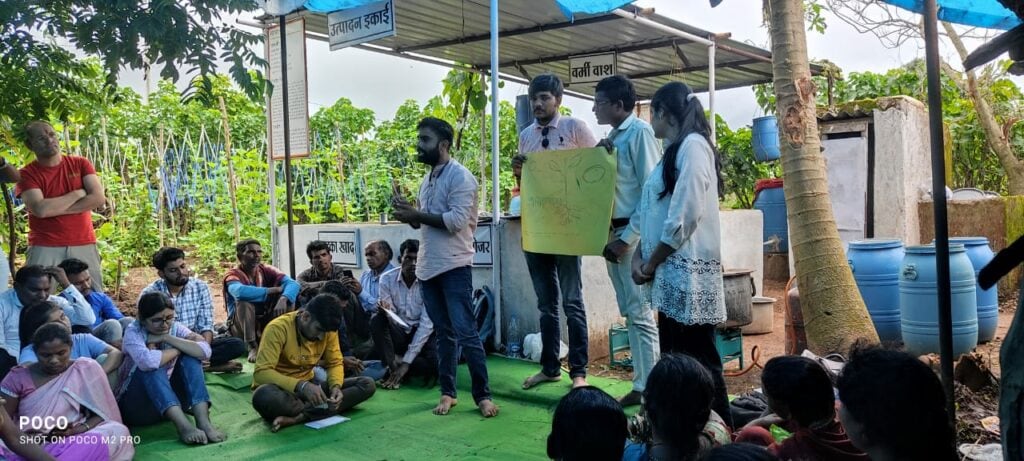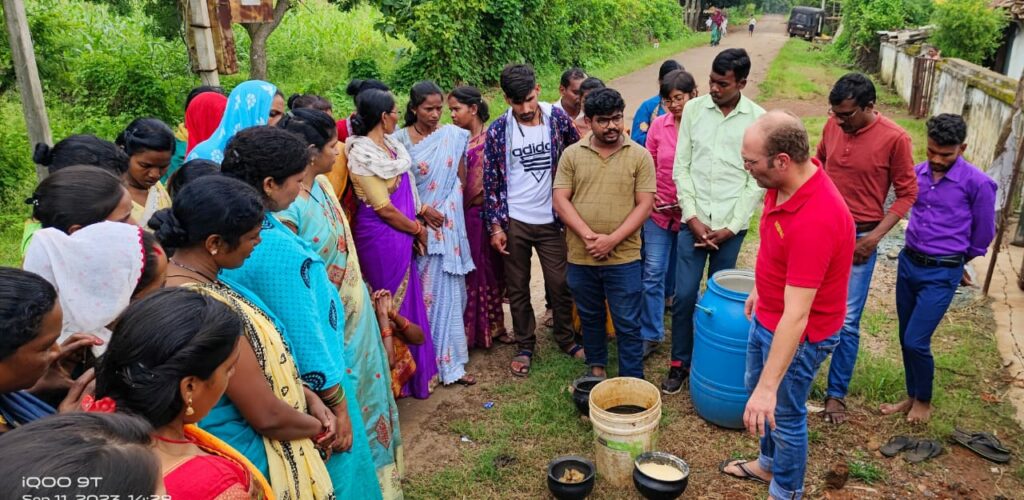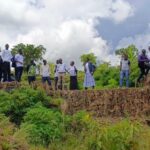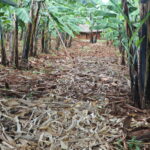Advancing regenerative agriculture through the Green Transformation Pathways Project
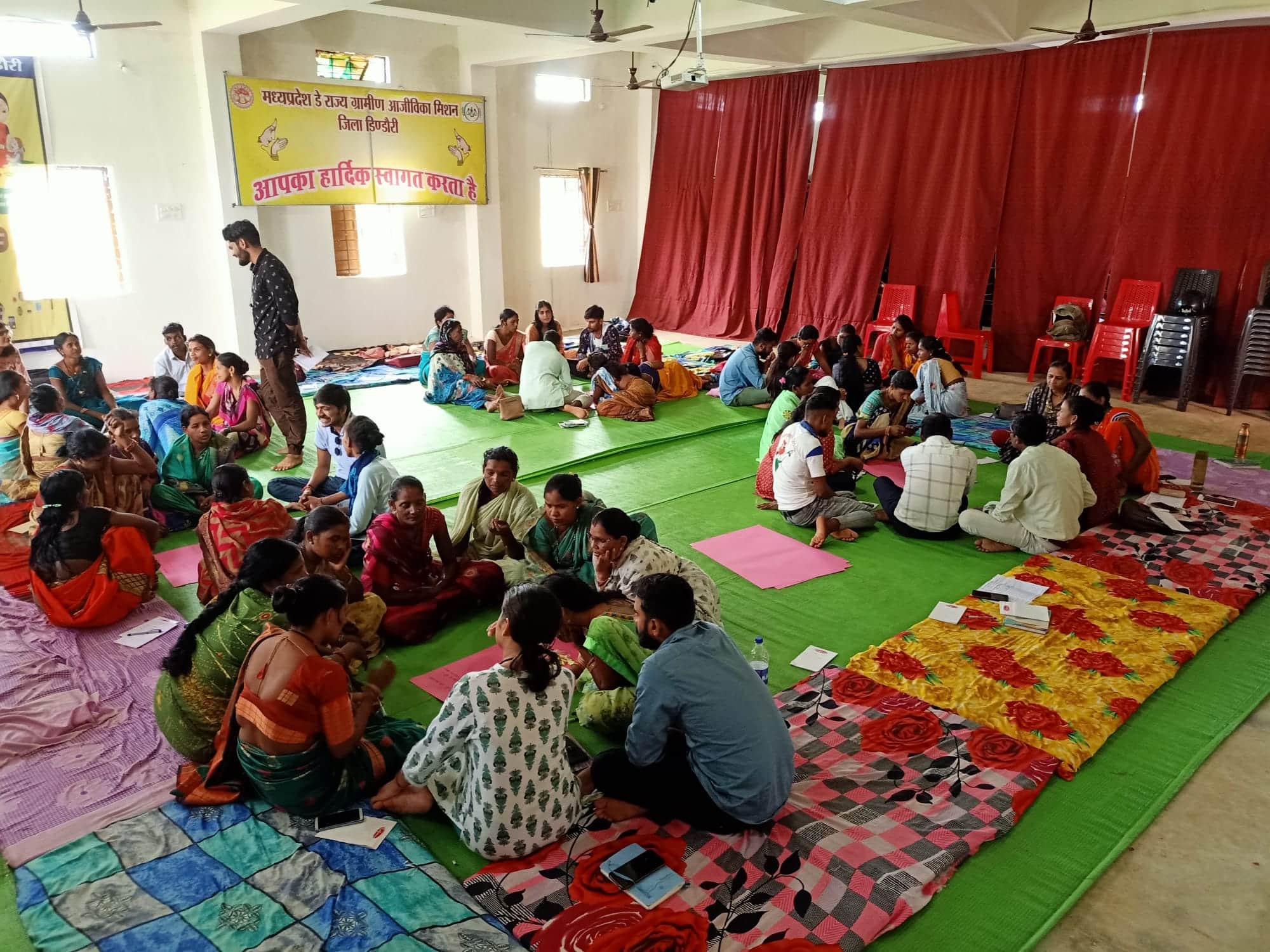
Article by Marina Vara Gutiérrez (Regenerative Agriculture expert at AidEnvironment)
What a journey it is being part of the Green Transformation Pathways (GTP) project in India! The GTP project is rooted in four pillars: regenerative agriculture, natural resources management, local economy, and women’s centrality. In September 2023, as part of the regenerative agriculture workstream developed for the project, Ruben Borge (Rockinsoils), an external consultant working with AidEnvironment, visited the project areas. Together with Arpan Mondal and Pratik Pranjan from MetaMeta, he facilitated training at the Bio-Resource Centers and the Large-Scale Composting units in the GTP regions.
Regenerative Agriculture Training at Two Bio-Resource Centers
Bio-Resource Centers (BRC) are led by community women and produce various biofertilizers, biopesticides, and soil amendments using locally available products, which are then sold to the community. Serving as information hubs, these centers offer farmers advice on using different products and provide a platform for discussing agricultural challenges. Within GTP, the AidEnvironment and MetaMeta teams have collaborated closely with PRADAN’s field teams to enhance the efficiency of their products.
To support the improvement of products at the Centers, two training courses were conducted in Gumla (Jharkhand) and Samnapur (Madhya Pradesh), involving 105 participants. This diverse group included PRADAN field experts, master trainers, agricultural experts, and BRC entrepreneurs. The curriculum focused on various aspects: imparting technical knowledge on regenerative agriculture principles, assessing existing formulas employed by the BRCs, introducing principles and methodologies to refine formula preparation, conducting practical demonstrations of new preparation procedures, and raising awareness about sustainable wildcrafting practices. Wildcrafting entails the harvest of wild plants and fungi from their natural habitat. Sustainable wildcrafting techniques are crucial when local communities depend on not cultivated products since they help avoid the overexploitation of the plants being used and allows for the sustainable long-term access to the resources needed (in this case wild plant with pesticide compounds).
The training balanced theoretical knowledge with hands-on practical sessions, and participants were organized into subgroups to facilitate peer-to-peer learning and discussions. Additionally, structured classroom sessions were included in the program to offer in-depth insights into the subject matter for the technical experts from PRADAN.
As a significant outcome of this training, participants gained valuable knowledge about regenerative agriculture practices. The sessions enabled them to scrutinize the bio-formulation practices currently in use at the BRCs, revealing variations in ingredients, procedures, and dosages across different centers. This highlighted a pressing need for standardization. Participants were encouraged to integrate the suggested changes into their practices, aiming to improve the efficiency of the formulations.
Visits to Large-Scale Composting Units
Composting application is a fundamental regenerative agriculture practice that enhances soil health and productivity. In the GTP project, various large-scale compost (LSC) production units have been established to offer readily made organic compost at affordable prices for farmers unable to produce their own soil amendments. The AidEnvironment and MetaMeta teams, in collaboration with PRADAN’s technical field staff, have been fine-tuning compost production and developing a scalable institutional, technical, and economic model for local entrepreneurs.
To realize this goal, visits were conducted to LSC units in Torpa and Porayahat in Jharkhand. The visits included discussions on unit operations, plot selection, compost making, branding, and packaging. Additionally, the setup of a poultry composting unit was assessed, and an action plan for successful implementation was developed with the local team.
As a main outcome of these visits, the participants gained valuable insights regarding sustainable and efficient compost production, maintenance of machinery, plot design for efficient compost production, development of business models and economic scenarios, and marketing strategies for the products. The discussions highlighted the need for strong and clear institutional arrangements to foster the economic and technical success of the large-scale composting units. Participants were encouraged to integrate the main discussion points in their action plan for the coming months, aiming to strengthen the large-scale composting unit model.
Through this collaborative project activity, technical support was provided to the PRADAN field teams to continue with the improvement of the production of bio-inputs and soil amendments, making them more efficient and sustainable.
We are looking forward to engaging in the upcoming activities planned in the GTP project and deepening our engagement through our partnership in the GTP project and with the support of IKEA funding. GTP is funded by the IKEA Foundation and implemented through a partnership of four organizations: PRADAN, FES, METAMETA, and AidEnvironment.

